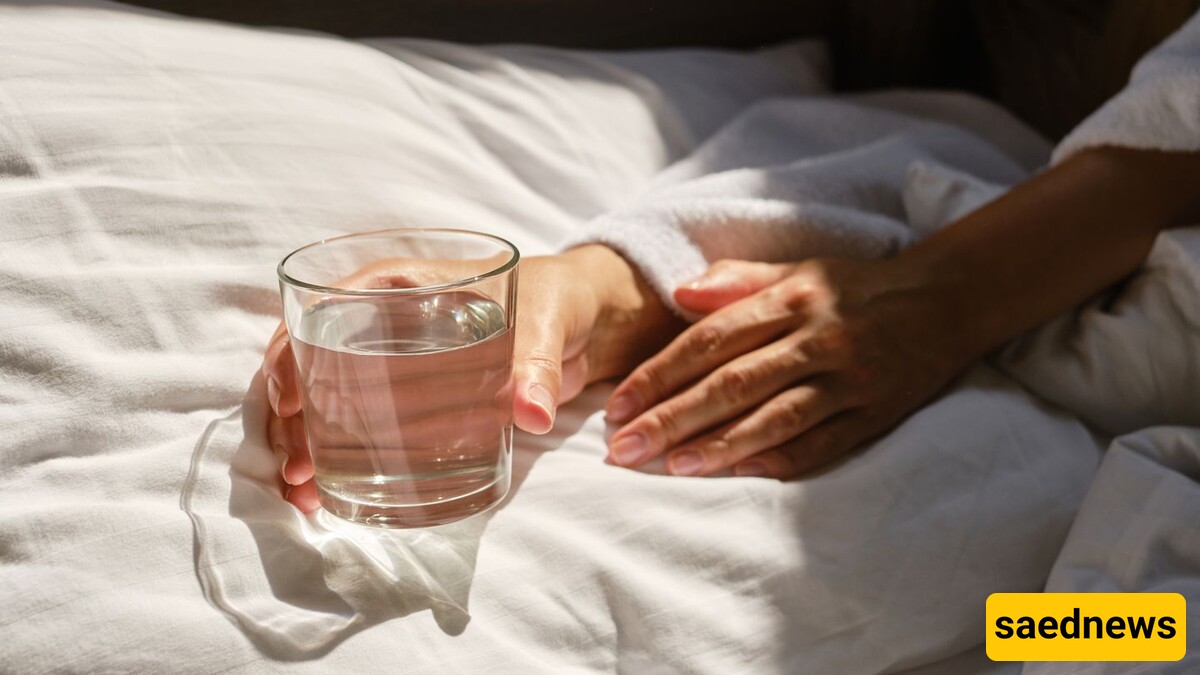SAEDNEWS: If you experience insomnia, it could be due to the symptoms of dehydration. Dehydration can cause dry mouth, headaches, and muscle cramps that may interfere with sleep. Treatment can help.

According to SAEDNEWS: our daily water intake contributes to your overall well-being. If you don’t drink enough, you could experience symptoms such as headaches, weakness, and dizziness.
These symptoms can interfere with your ability to sleep well. Although dehydration isn’t a direct cause of insomnia, it can contribute to poor sleep.
How dehydration affects your sleep
Symptoms of dehydration can appear at night and interfere with the duration and quality of your sleep. One obvious example is waking up in the middle of the night feeling thirsty. If you have to get up to drink water, you might struggle to fall back asleep afterward.
Other side effects of dehydration — such as headaches and muscle cramps and spasms — can also keep you awake.
Aside from these disruptive symptoms, there are no clear links between hydration levels and insomnia. And there’s very little research on the topic.
If you think dehydration is contributing to poor sleep, the best way to treat it is to increase your water intake throughout the day. You may want to try some of these strategies:
Keep water with you at all times: It’s easier to remember to drink water if you always have a refillable water bottle with you.
Use a hydration app: If you find it difficult to drink enough water, a hydration app can provide reminders throughout the day.
Choose water: While liquids such as herbal tea, juice, and broth can all contribute to your daily fluid intake, water should be your go-to drink most of the time.
Drink before, during, and after exercise: You can avoid exercise-related dehydration by increasing your water intake even before you start physical activity.
Limit caffeine and alcohol: Caffeinated drinks and alcohol are OK in moderation, but to stay hydrated, be sure to drink water too.
Check your medications: If you suspect that diuretics are contributing to dehydration at night, talk with a healthcare professional about the best course of action.
Treat medical conditions: Keeping medical conditions such as diabetes, kidney disease, and Sjögren’s syndrome in check can help you avoid dry mouth and related symptoms at night.
Keep your bedroom cool: To avoid sweating too much in your sleep, keep your bedroom around 65°F (18.3°C) at night whenever possible.

